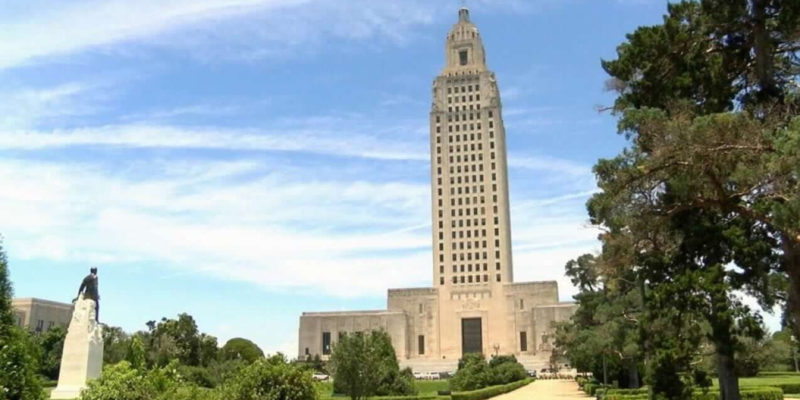Although fiscal reform is getting all of the attention in Louisiana’s third special session of the year, a couple of very consequential bills dealing with legislative and judicial behavior also have received vetting.
One deals with the topic of legislative continuances, or the ability of legislators and legislature employees to delay trials when they are parties to a case. Until recently, state law essentially allowed these individuals (or their opponents to finesse against them) with impunity to delay cases in the most extreme situations for years. Perhaps the most notorious involves Democrat state Sen. Katrina Jackson-Andrews who had received $40,000 from the family of an accused murderer for his defense, but has used a series of continuances to keep him from coming to trial while he awaits, jailed.
But last month the Supreme Court decided a case involving another defendant frustrated that his day in court has been delayed years, involving Republican state Sen. Alan Seabaugh and most recently GOP state Rep. Michael Melerine (who has been part of the case but only became a legislator this year). It its ruling it struck down the law as intruding upon the separation of powers, in that the Legislature interfered with the judiciary’s basic constitutional operations.
Continuances exist commonly among the states, and this ruling vacated any such thing for Louisiana. Consequently, the Court days later issued continuance guidelines for lower courts that said these still could be requested and presumed approved as long as the legislator affirmed (it didn’t include legislature employees) he was to take part in a session or constitutional convention at the time and was an active participant in the case. The presumption could be overcome if the legislator’s request was obviously dilatory or a delay would cause immediate harm to a party. A continuance could be requested at other times, such as when a trial would interfere with a committee meeting, without the presumption. Rejected requests could be appealed immediately to the Court.
Through its ability to define judicial practices by legislation, the Legislature may decide it won’t leave this to the Court, which the Constitution allows to establish rules. Thus, SB 8 by Republican state Sen. Gregory Miller is up for consideration that goes beyond the Court’s dictates by making a continuance entitled under the criteria set up by the Court a month before and after sessions or conventions, and includes employees, although it creates more exceptions to which it wouldn’t apply. It might be heard this week.
And there is a bill that might more generally affect the state: SB 1 brought by GOP state Sen. Jay Morris. This bill would amend the Constitution so that statewide courts of specialized jurisdiction and any new courts of general and appellate jurisdiction could be created by two-thirds majorities in both chambers.
Morris described this as a mechanism that allows statute, rather than constitutional amendment, to add statewide courts to the only such one, the constitutionally-defined Board of Tax Appeals, like a business court that a majority of states have to hear complex commercial cases. However, the two-thirds requirement would make difficult adding more courts of any kind at any level, which has the salutary impact of preventing the judiciary with among the highest per capita number of judges at all levels among the states even as caseloads appear to decline from becoming even more out of whack. That bill passed to the Senate floor on a party-line vote won by the GOP.
So, while the fiscal matters grab all the headlines, some judicial matters of import will receive discussion, and perhaps enactment or presentation to voters, at this special session.
Advertisement
Advertisement

